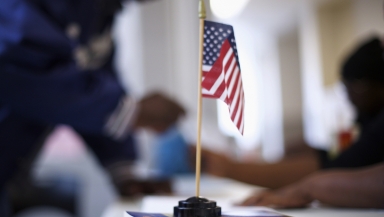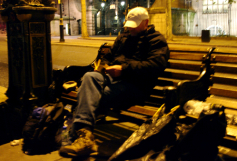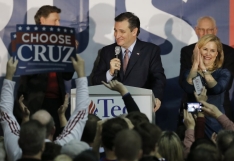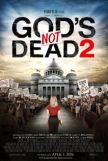
White evangelical Protestants are the only religious community in the US to believe that immigrants threaten traditional American customs and values, new research has revealed.
Released today by the Public Religion Research Institute, a study has found that while Americans overall are more likely to say that newcomers from other countries strengthen society, evangelical Christians buck the trend.
Just less than a third (32 per cent) of white evangelical Protestants say they believe immigrants benefit the US. The majority, 53 per cent, say immigrants actually threaten traditional American customs and values. This view is most popular among older evangelicals, and those without a college degree.
It gets more depressing. Three of the four religious groups most likely to support identifying and deporting all immigrants currently living in America illegally are white Christian groups: white evangelical Protestants (30 per cent), white mainline Protestants (25 per cent), and white Catholics (22 per cent).
Other religious communities, meanwhile, are far more likely to have positive views of immigrants. The majority of Hindus (73 per cent), Muslims (72 per cent) and Hispanic Catholics (70 per cent) say that newcomers to the US strengthen the country. More than six in 10 (61 per cent) of religiously unaffiliated Americans hold the same view.
This is a damning indictment on the state of evangelical Christianity in the US, though unsurprising given the widespread support for the rhetoric espoused by Trump, Cruz et al in the run up to this year's presidential election. Onlookers have long noted that a large swathe of conservative Republican support is found among the Bible Belt - a haven for white evangelical Christians. They are there, to be found chanting 'Build a wall!' at Trump rallies and worrying about the persecution in a country where Christians enjoy more religious freedom than most around the world.
There are a number of reasons why a negative attitude toward immigration is entirely misplaced. Though there is a genuine, reasoned argument for capped and checked migration, to put a blanket statement on immigration as 'threatening' to a country's values is bewildering. For starters, the concept of 'traditional American customs and values' being threatened by immigrants is somewhat laughable given that the US was built on immigration. It was literally founded by immigrants - as were most modern nations.
Secondly, to subscribe to a kind of 'Christian nationalism' is entirely counter-Gospel. It's a rhetoric that is woven throughout much evangelical thought - the (false) idea that America is fundamentally a Christian country. It's not necessarily that evangelicals think all Muslims are terrorists, though many do, but it's just that they aren't Christian, and if they are let in, America is at risk of losing its 'Christian roots'.
The basic message of the Gospel is one of adoption into sonship; of welcoming the stranger and being part of one family. There's an incredibly strong tradition throughout Scripture of the people of God being taught to treat others well, especially those who don't look like we do, or believe the same things.

And this is the real kicker: Christianity is a missionary religion. If you don't like newcomers - you're part of the wrong faith. It's all about people converting into it; it's founded on bringing people on the outside into the family. If Jesus had the same attitude as white evangelical Protestants, there's no way any of us would make it in.
As Christians, our primary allegiance is not to our country - it's to God. We're ultimately part of His kingdom, where there is no slave or free, Jew or Gentile. We are to respond with compassion to those who need our help, and treat them as we would like to be treated.
For those of us in the UK, it's easy for us to judge middle-class Christianity in the US for its ridiculous attitudes - and they are ridiculous. But we also need to ask tough questions of ourselves. Why is it okay for millions around the world to starve, and live without basic resources, while we live in luxury? Why, when pushed, do we, too, say 'they can't come over here', in case it disrupts our comfortable life? What is our justification? How different, really, are we from Trump followers?


















